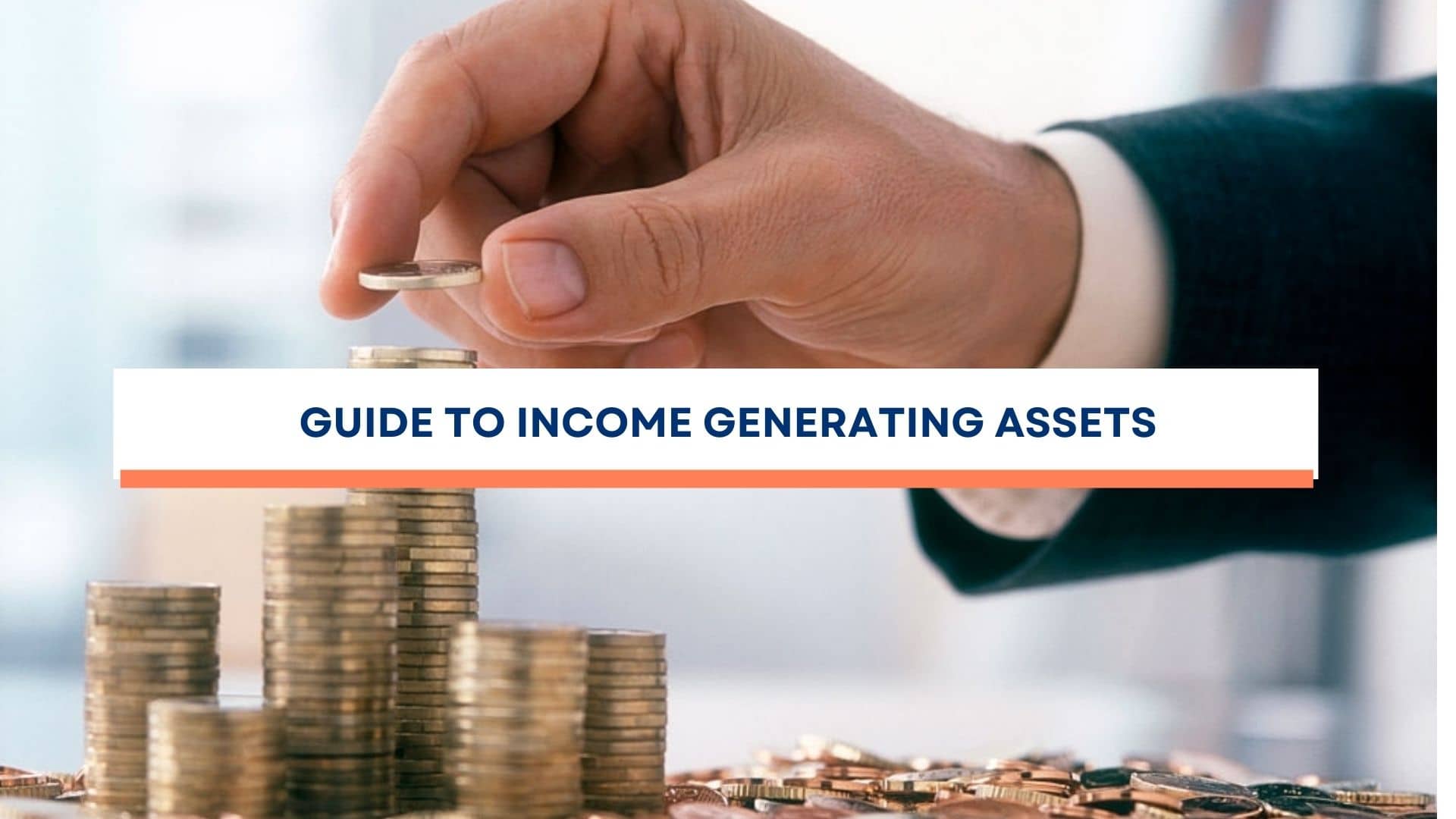Guide To Income Generating Assets
Looking to build your wealth with a smart investment but not sure what to invest in? Income-generating assets are designed to give you a passive source of income that helps you achieve your financial freedom goals.
Defining income-generating assets
In simple terms, an income-producing asset refers to an asset you invest in with the intention of generating income from it in the future. Many successful entrepreneurs, including successful real estate investors, leverage income-generating assets to secure steady streams of revenue. By investing in the right income-producing assets, you can ensure you receive consistent money from multiple sources.
Making the right investment in income-generating assets does not mean that you have to be an experienced investor. With careful planning and the right research, anyone can make informed decisions in acquiring income-generating assets. Whether you are approaching retirement, a fresh graduate, or looking for a passive income stream, buying the right assets will help you build wealth and achieve financial freedom.
Here is a list of income-generating assets that can help you secure a steady source of income:
Certificates of Deposit
A certificate of deposit, abbreviated as CD, is a type of financial investment that banks and credit unions offer. The principle behind this is that the customer leaves a deposit with the bank for a defined period of time and the bank provides interest on the amount in exchange. The period of time that you leave your money untouched with the financial institution is called ‘term length.’
While almost all financial institutions offer CDs, each bank specifies its CD terms such as the rates of interest, the term length, and penalties applicable for early withdrawal of the money.
The term length typically ranges from a few months to five years. If you withdraw your money during this time, you will have to pay a penalty. The interest rate you earn on the deposit also varies based on the term length. The longer you keep the money with the bank, the more the interest. CDs are considered low-risk investments as they are insured up to $250,000 by the FDIC. However, there are several drawbacks.
Drawbacks
-
Interest rates can fall – The FOMC (Federal Open Markets Committee) sets the target interest rate (Federal funds rate) for banks. These rates directly influence the interest rates offered on CDs. When the target interest rate is low, banks are not incentivized to court deposits. When the rates are high or moderate, banks typically pay competitive rates to their customers. In December 2015, the federal funds rate was increased and the CD interest rates became attractive. However, during the pandemic, the federal funds rate fell in response to the economic situation. The lower rates mean CDs are not attractive income-generating assets currently.
-
Inflation – With the average inflation being 3.7 per cent, you can stand to lose money if you lock in your deposit.
-
Lack of flexibility – You may not be able to withdraw your deposit to meet short-term financial needs such as vacation or a wedding.
Stocks and Bonds
Bonds are a loan that you give to a corporation or government. While being stable and low-risk, these provide smaller interest rates of anywhere from 1 to 8 per cent, depending on the type of bond you invest in. You can choose the period for the bond that can be one year, two, or five years.
Stocks, on the other hand, are risky investments. Some companies pay their shareholders a share of their earnings through dividends. Established, large and profitable companies are called blue-chip companies which are listed on most stock exchanges. You can buy shares of a blue-chip company through a broker or directly by opening an investment account. However, investing in stocks and shares requires a deeper knowledge of which stocks to invest in, how to diversify your portfolio and what factors influence the stock price.
The key disadvantage with stock market investments is the volatility. The market sometimes goes up and can decline at other times.
You will also make money only as long as the company is profitable. If the company declares bankruptcy, shareholders may receive nothing. Stocks are also not a viable retirement income option, given the market uncertainty.
Real estate
One of the smartest strategies to generate consistent revenue is to invest in real estate. You can use your private money for real estate investing and purchase a multi-unit property or a home that you can rent out to tenants. This is a great way to earn a steady rental income over a long time.
You can also wholesale property in different ways. As a wholesaler, you can contact the property with the seller, and find a buyer for it. The contract with the buyer is at a higher rate than with the seller, which ensures you make a profit. You can also sell through a double escrow. One escrow relates to the investor’s purchase and the second one is for the sale to the end-user.
You can also go in for the ‘fix and flip’ strategy. Fixing and flipping refer to the strategy where the investor buys a property, adds value to it by remodeling it, and sells it for a higher price. You can also opt to buy the property and sell it quickly without remodeling it.
If you have private money for real estate investing, going ahead with the investment will help you meet your goals of securing cash flow or value appreciation. Steady population growth, job market growth, tourism, and infrastructure improvement are fueling the growth of real estate across the U.S.
For instance, real estate investors including successful real estate investors benefited from a10 percent rental yield in 2020 in Florida.
Consult an Expert
The key to acing your real estate investment strategy lies in research. Choosing the right property, location and timing are crucial to optimizing your investment in the long term. Mentorship from experienced real estate experts such as Laura Alamery helps you avoid the typical pitfalls and mistakes and make the most of your real estate investment. The expert can guide you on the steps to making the right investment whether you have little to no money or abundant private money for real estate investing.
 Subscribe to our podcast
Subscribe to our podcast 


